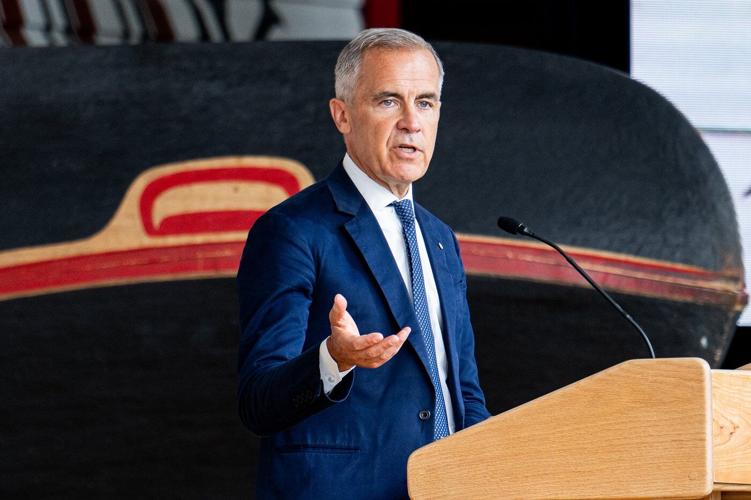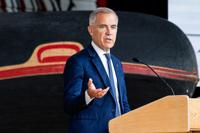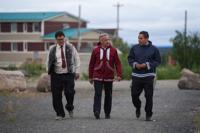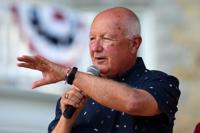INUVIK - Prime Minister Mark Carney is sitting down with Inuit leaders Thursday to discuss his government's controversial major projects legislation, and those leaders are saying they have a lot to work through with the federal government.
The meeting of the Inuit-Crown Partnership Committee is being co-hosted by Natan Obed, president of Inuit Tapiriit Kanatami, in Inuvik, N.W.T.Â
Obed has said Inuit have many questions about Bill C-5, or the One Canadian Economy Act, and are hoping the meetings clarify the role they'll play in Carney's plans for a single Canadian economy.
In his opening remarks Thursday, Obed said the fact that the meeting was held so soon after the April election gives him the sense that the prime minister is willing to work with Inuit.
"We have a lot of issues that we need to work through," he said. "There are actually 14 priority areas within the ICPC structure and 14 associated work plans. We look forward to getting back to work on some of those areas as well."
The recently passed One Canadian Economy Act gives Ottawa the power to fast-track projects it considers to be in the national interest by sidestepping environmental protections and other legislation.
Indigenous leaders have accused the federal government of failing to consult with them adequately when the legislation was being drafted and amended.
Obed has himself criticized the federal government over the legislation and told senators who were studying it last month that Ottawa has been hypocritical in its approach to reconciliation.
Obed told the senators Canada's pattern is to present itself as a champion for Indigenous Peoples' rights while “acting very differently through its legislation and through its practice.”
“I think of those things as being born not only out of ignorance, but out of a clear decision on whose rights matter and whose don’t, and how to get to an end goal that makes Canada feel good about itself while still trampling on the very rights that it says it upholds,” he said.
He said the One Canadian Economy Act doesn't respect those rights and warned fast-tracked projects could end up before the courts, causing significant delays to the government's agenda, creating instability and undermining investor confidence.
One court challenge has already been launched by First Nations that are asking a judge to find the legislation unconstitutional.
Carney promised the day the bill was passed to hold talks with First Nations, Inuit and MĂ©tis leaders to get input on how projects can proceed.
After Carney met with First Nations leaders in Ottawa last week, some chiefs said they were left with more questions than answers and no clear idea of how the government plans to implement its agenda.
In his remarks Thursday, Carney said there's much work to be done on closing infrastructure gaps and improving social services in the Arctic and warned that the region's security is under threat.
He also insisted that Bill C-5 "fully respects" treaty rights.
"It fully respects treaty-based environmental assessment processes," said Carney. "In fact, those will be essential for anything that we move forward.
"What the act does is it creates conditions for the federal government to be more effective and efficient in our part of the partnership."
Several cabinet ministers, including Northern Affairs Minister Rebecca Chartrand and Indigenous Services Minister Mandy Gull-Masty, also attended Thursday's meeting.
Foreign Affairs Minister Anita Anand's office confirmed Thursday that Virginia Mearns has been appointed as Canada's new Arctic ambassador.
— With files from Alessia Passafiume and Dylan Robertson in Ottawa.
This report by °µÍř˝űÇř was first published July 24, 2025.
°µÍř˝űÇř. All rights reserved.










































